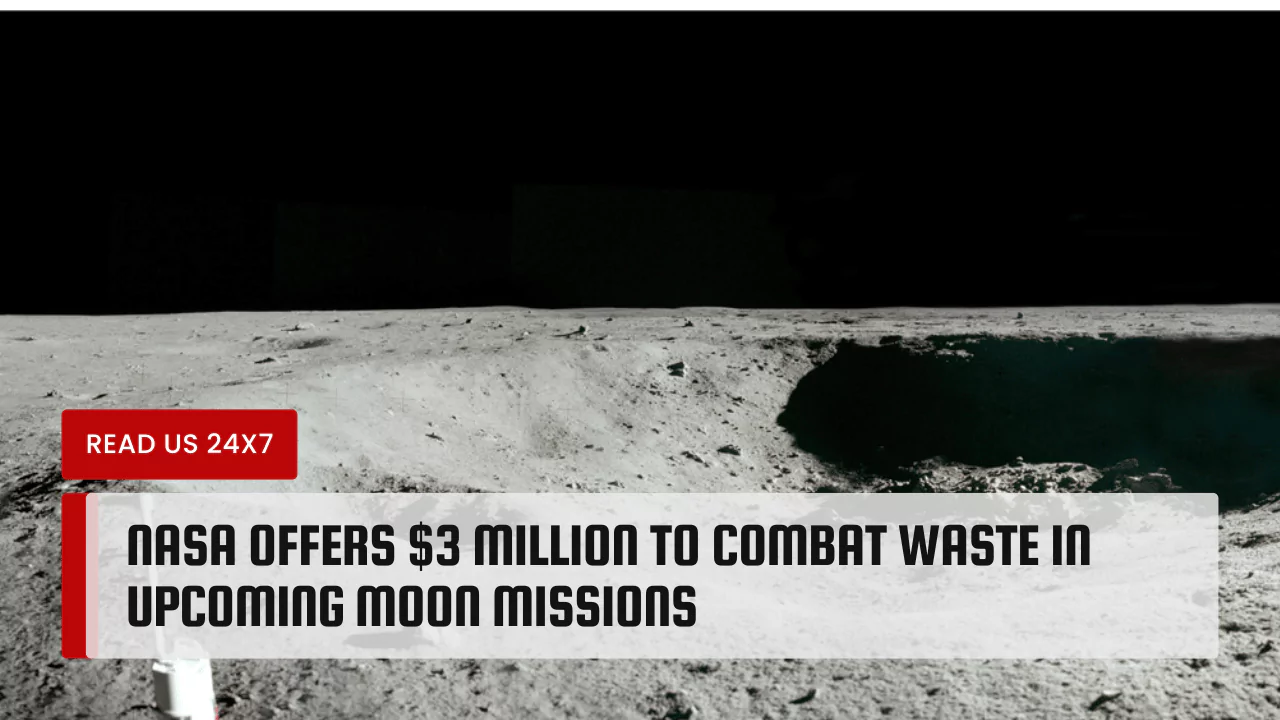NASA is offering a prize of $3 million to anyone who can help solve the problem of waste management on the Moon. This initiative is part of the LunaRecycle Challenge. The goal is to find creative and effective ways to manage waste during long missions on the Moon. This is important because as astronauts explore and live on the lunar surface, they will create waste. Proper waste management will ensure that these missions are sustainable.
Why Waste Management is Important
When humans travel to the Moon, they will take food, tools, and other supplies. Once these items are used, they will create waste. It can include food wrappers, old clothing, and packaging materials. If this waste is not managed well, it can cause problems for astronauts.
Space is limited, and waste can take up space needed for supplies. It can also harm the Moon’s environment. Astronauts must have a plan for what to do with their waste. This is why NASA is seeking new ideas from the public.
The LunaRecycle Challenge
The LunaRecycle Challenge is open to all. People from different backgrounds can participate. This includes students, scientists, engineers, and anyone who has good ideas. The challenge has two main phases.
In the first phase, participants will submit their concepts for waste management. NASA will select the most promising ideas for the second phase. In this phase, selected teams will develop their plans further. The best solution will win the $3 million prize.
What Types of Waste Are Involved?
NASA is looking for solutions to handle various types of waste. This includes solid waste, which comes from food and supplies. It also includes recyclable materials. NASA wants to know how to recycle things that astronauts will use. Finding ways to recycle materials can reduce the amount of trash left on the Moon.
Innovative ideas can involve using local resources on the Moon. This could mean creating systems for reusing waste materials. Another focus is on how to store waste until it can be recycled or disposed of safely.
The Importance of Sustainability in Space
Sustainability is very important to NASA. As they prepare for missions to the Moon and beyond, waste must be minimized. The goal is to leave a clean environment wherever astronauts go. Managing waste properly shows that space exploration can be responsible.
NASA believes that lessons learned from waste management on the Moon can help on Earth. Solutions developed for lunar missions can inspire new ideas for waste reduction at home. This challenge encourages people to think about how their ideas can have a bigger impact beyond space.
How to Get Involved
Anyone interested in joining the LunaRecycle Challenge can submit their ideas online. Participating teams can work in groups or alone. The challenge is designed to be inclusive and encourage creativity. NASA provides resources to help participants understand what they need to consider.
This includes guidelines and examples of past waste management strategies. Workshops and webinars will also be available to participants. These resources help teams improve their chances of success in the competition.
Preparing for the Artemis Missions
NASA is preparing for its Artemis program. This program aims to land the first woman and the first person of color on the Moon by 2026. As NASA prepares for these important missions, addressing waste management is crucial.
Proper waste management will allow astronauts to live and work on the Moon for longer periods. It will also help to avoid clutter and pollution on the Moon’s surface. With the LunaRecycle Challenge, NASA plans to find solutions that can be used during the Artemis missions.
The Bigger Picture
The LunaRecycle Challenge is part of a larger plan for sustainable exploration. NASA wants to make space travel responsible and effective. Solutions for waste management on the Moon can lead to new technologies. These technologies can help people on Earth, making life better for everyone.
By addressing waste, NASA aims to create missions that can be repeated and expanded in the future. This means exploring Mars and other distant places in the solar system. Sustainable practices developed for the Moon will be incredibly useful for these future missions.
Encouraging Innovation
NASA encourages innovation through the LunaRecycle Challenge. This competition aims to inspire creative thinkers around the world. It allows the public to have a role in space exploration.
Having a diverse group of participants can lead to unique solutions. New ideas may come from unexpected places. This variety of perspectives is essential for tackling the complex issues of waste management.
NASA is also committed to sharing knowledge gained from this challenge. They will take the ideas developed and apply them to both space and Earth. This approach ensures that everyone benefits from the solutions created.
Conclusion
NASA’s offering of a $3 million prize through the LunaRecycle Challenge highlights the importance of waste management. As humans plan to explore the Moon again, solutions for dealing with waste are essential. The challenge invites participation from all, fostering innovation in space exploration.


